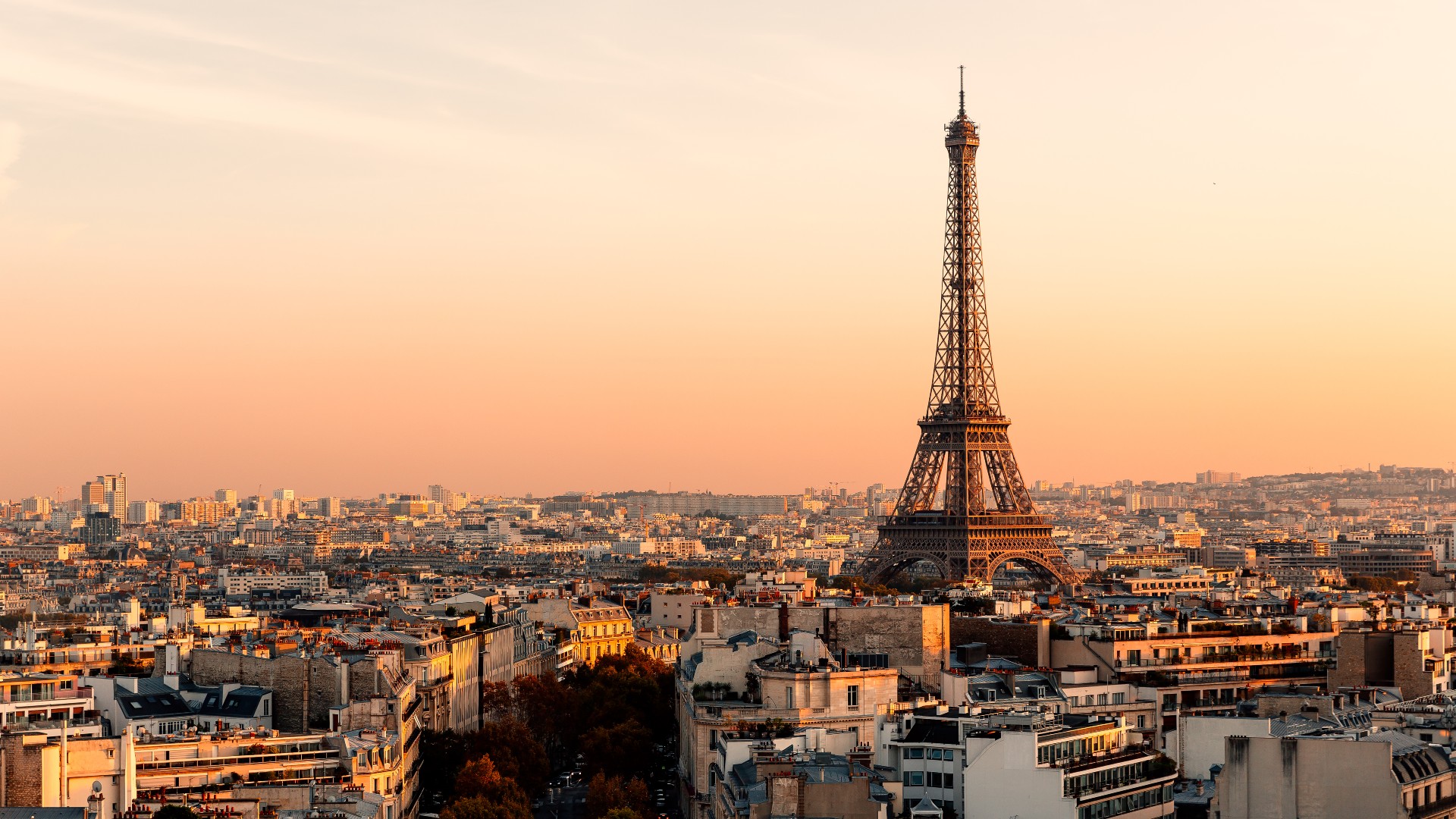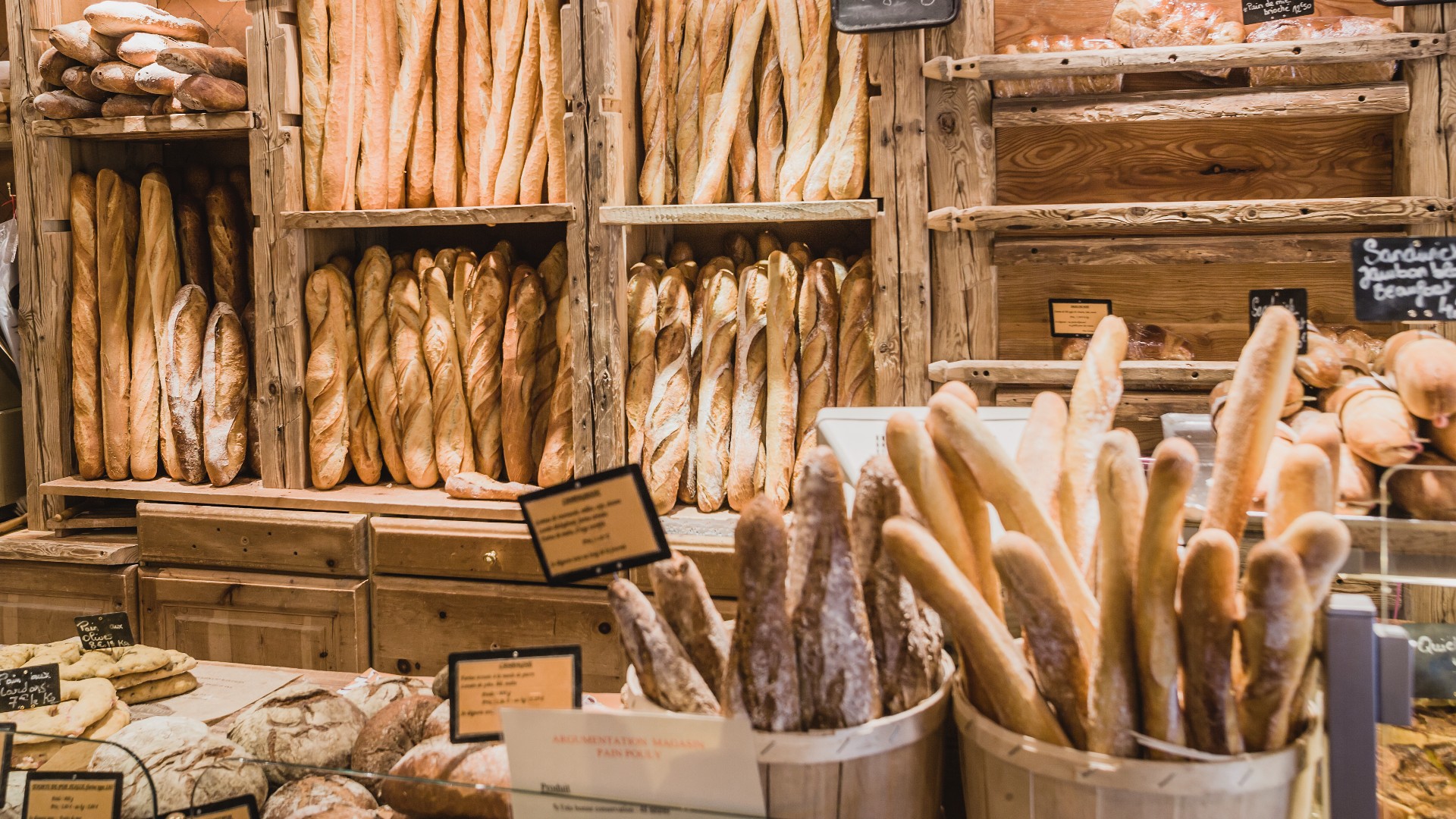French culture: Customs & traditions
French culture, from art and fashion to food and language, is one of the most influential in the world today

French culture is most commonly associated with Paris, which is a center of fashion, cuisine, art and architecture, but life outside of the City of Lights is very different and varies by region.
France doesn't just have culture; the word "culture" is actually French. "'Culture' derives from the same French term, which in turn derives from the Latin 'colere,' meaning to tend to the earth and grow, cultivate and nurture," Cristina De Rossi, an anthropologist at Barnet and Southgate College in London, told Live Science.
Historically, French culture was influenced by Celtic and Gallo-Roman cultures as well as the Franks, a Germanic tribe. France was initially defined as the western area of Germany known as Rhineland but it later came to refer to a territory that was known as Gaul during the Iron Age and Ancient Roman era.
In the centuries that followed it was the home of some of the most powerful royal families of the medieval and early modern period and went on to be the center of the Enlightenment with the French Revolution. The rise of Napoleon saw French influence spread through Europe and beyond, becoming one of the major world powers through the 19th and 20th centuries, at the heart of the First and Second World Wars, all of which has shaped the France we know today.
Population of France
The National Institute of Statistics and Economic Studies (INSEE) places the population of France at 67.81 million people as of January 1, 2022. Of that population, 87.8% are believed to be French-born citizens with a further 4.8% acquiring French citizenship after birth, according to Statista. The most common nationalities of foreign-born residents in France, according to 2020 figures from The Institut National d'Études Démographiques (INED) are Algerian, Moroccan, Portuguese, Tunisian, Italian, Turkish and Spanish.
The INED calculates that around 48.35% of the population of France is Male and 51.65% is female, as of February 2021. Just under a quarter of the population is under the age of 20 and a little over 20% is age 65 and above.
The vast majority of French people live in urban areas, with Statista saying that 80.69% of the population lived in cities as of 2020. This is a large increase from the 61.88% that lived in cities back in 1960.
Get the world’s most fascinating discoveries delivered straight to your inbox.
French language
French is the official language and the first language of 88% of the population, according to the BBC. It is the dominant language of France, but there are a number of variants based on region.
French is the second most widely learned foreign language in the world, with almost 2 million students learning it as a second language across 50 countries, according to the French Ministry of Foreign Affairs and International Development. French is also the seventh most-spoken language in the world according to Statista, with around 267 million native speakers.
About 3% of the population speaks German dialects, and there is a small group of Flemish speakers in the northeast, according to the BBC. Arabic is the third-largest minority language.
Those living near the border of Italy may speak Italian as a second language, and Basque is spoken by people living along the French-Spanish border.
Other dialects and languages include Catalan, Breton (the Celtic language), Occitan dialects, and languages from the former French colonies, including Kabyle and Antillean Creole.
Religion in France
Catholicism is the predominant religion of France. In a survey by the French Institute of Public Opinion (IFOP), 64% of the population (about 41.6 million people) identified themselves as Roman Catholic. The other religions in France include Islam, Buddhism and Judaism. From 33% to 42% of people in France do not subscribe to a religion, according to the CIA, although it points out that, "France maintains a tradition of secularism and has not officially collected data on religious affiliation since the 1872 national census, which complicates assessments of France's religious composition."
French values
The French take immense pride in their nation and government and are typically offended by any negative comments about their country. Visitors, particularly Americans, often interpret their attitude toward foreigners as rude.
"From around the 16th century, in Europe, culture became a term for the cultivation of the mind, the intellect, knowledge, learning, creative faculties and acceptable ways of behaving," said De Rossi. The French embrace style and sophistication and take pride in the fact that even their public spaces strike a regal tone.
The French believe in égalité, which means equality, and is part of the country's motto: "Liberté, Egalité, Fraternité." Many say they place a higher importance on equality than liberty and fraternity, the other two words in the motto.
The French embody romance and passion, and there is an open attitude toward sex outside of marriage, according to a study by France's National Research Agency on AIDS quoted by "Time." Even the country's top politicians have been known to carry out extramarital affairs without making an effort to conceal them. As a reflection of the country's secular nature, it is not uncommon for children are born to unmarried couples.
In addition to traditional marriage, French couples also have the choice of getting a pacte civil de solidarité (PACS). This is a union that has many of the same benefits of marriage, like tax breaks, but can be dissolved with a notice or by marrying someone else or instead of a divorce. Two-thirds as many French couples are in a PACS as are married, according to "The Economist."

French food
Food and wine are central to life at all socioeconomic levels, and much socializing is done around lengthy dinners in French households.
While cooking styles have changed to emphasize lighter fare, many still associate French cooking with heavy sauces and complicated preparation. Some classic French dishes include boeuf bourguignon — a stew made of beef braised in red wine, beef broth and seasoned with garlic, onions and mushrooms — and coq au vin, a dish made with chicken, Burgundy wine, lardons (small strips or cubes of pork fat), button mushrooms, onions and optional garlic.
French food is also associated worldwide with haute cuisine (which translates to "high cooking"), but its family meal tradition is equally important. "Authentic French cuisine represented by the family meal belongs to the people, and rhetorically to the provinces. Nostalgic 'cuisine de grandmère' rivals French haute cuisine for the crown of identifiably French food," wrote Maryann Tebben, professor of language and literature at Bard College, in her book "Savoir-Faire: A History of Food in France" (Reaktion Books, 2020).
French fries, interestingly enough, may not be French. According to "National Geographic," they may actually be from Spain or Belgium. The reason why Americans call fried potatoes French fries is because Thomas Jefferson discovered the treat while in France while serving there as American Minister from 1784 to 1789. He brought the idea back to the States.
French fashion
Paris is known as the home to many high-end fashion houses, such as Dior, Hermes, Louis Vuitton and Chanel. Many French people dress in a sophisticated, professional and fashionable style, but it is not overly fussy. Typical outfits include nice dresses, suits, long coats, scarves and berets.
The term "haute couture" is associated with French fashion and loosely means fancier garments that are handmade or made to order. In France, the term is protected by law and is defined by the Paris Chamber of Commerce, according to Eva Domjian, a London-based fashion writer and editor, writing on "Dressful." Domjian writes on her blog:
"To earn the right to call itself a couture house and to use the term haute couture in its advertising and any other way, a fashion house must follow these rules:
- Design made-to-order for private clients, with one or more fittings.
- Have a workshop (atelier) in Paris that employs at least fifteen people full-time.
- Each season (i.e. twice a year) present a collection to the Paris press, comprising at least thirty-five runs/exits with outfits for both daytime wear and evening wear."
French art
Art is everywhere in France — particularly in Paris and other major cities — and Gothic, Romanesque Rococo and Neoclassic influences can be seen in many churches and other public buildings.
Many of history's most renowned artists, including Claude Monet, Edgar Degas and Camille Pissarro, sought inspiration in Paris, and they gave rise to the Impressionism movement. This was followed by the Art Nouveau movement. "Based on asymmetrical, organic forms and influenced by Japanese art, the Art Nouveau style emerges in painting and the graphic arts as well as in architecture and the design of everyday objects," according to The Metropolitan Museum of Art.
The Louvre Museum in Paris is among the world's largest museums and is home to many famous works of art, including the Mona Lisa and Venus de Milo. Paris is also home to some extraordinary examples of architecture, such as the Louvre itself, the Eiffel Tower and more.
Holidays and celebrations
The French celebrate the traditional Christian holidays of Christmas and Easter. They mark May Day, also known as Labor Day, on May 1. Victory in Europe Day on May 8 commemorates the end of hostilities in Europe in World War II. Bastille Day is celebrated on July 14. This is the day the Bastille fortress in Paris was stormed by revolutionaries to start the French Revolution.
Additional reporting by Alina Bradford, Live Science Contributor.
Additional resources and reading:
For more about the French Revolution and, more specifically, the period that immediately followed you should read about the Reign of Terror from 1793 to 1794.
One of the common questions about French history is did Marie Antoinette really say 'let them eat cake'? We can give you the answer.
Bibliography
- National Institute of Statistics and Economic Studies
- "Share of the population in France in 2020, by nationality status," Statista
- "How many immigrants are there in France?" The Institut National d'Études Démographiques
- "Languages across Europe: France," BBC "Teaching and learning French," French Ministry of Foreign Affairs and International Development
- "The most spoken languages worldwide in 2021," Statista
- "Le Catholicisme En France En 2010," French Institute of Public Opinion
- World Fact Book: France, CIA
- "More Sex Please, We're French," by Bruce Crumley, "Time"
- "Carriage and horse," "The Economist"
- "Savoir-Faire: A History of Food in France" by Maryann Tebben (Reaktion Books, 2020)
- "Are French Fries Truly French?," by Rebecca Rupp, "National Geographic"
- "What is the true definition of haute couture?," by Eva Domjian, "Dressful"
- "Timeline of art history: France, 1800–1900 A.D." The Metropolitan Museum of Art
Kim Ann Zimmermann is a contributor to Live Science and sister site Space.com, writing mainly evergreen reference articles that provide background on myriad scientific topics, from astronauts to climate, and from culture to medicine. Her work can also be found in Business News Daily and KM World. She holds a bachelor’s degree in communications from Glassboro State College (now known as Rowan University) in New Jersey.
 Live Science Plus
Live Science Plus





